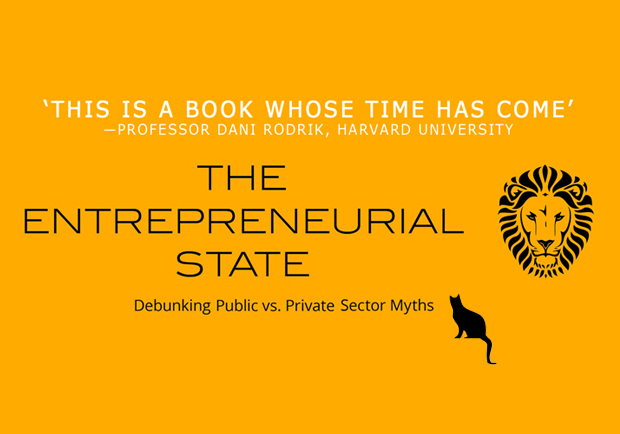It is, of course, becoming increasingly irritating to see Mariana Mazzucato being lauded for her stunning finding that the only reason we have nice things is because of government. Especially when one considers that this finding came from a research program funded by government. Biting the hand that feeds is really very terrible economics after all. The latest irritant is this, in her acceptance speech for an award:
The point is not to belittle the work of Jobs and his team, which was both essential and transformational. But we must be more balanced in the historiography of Apple and its founders, where not a word is mentioned of the collective effort behind Silicon Valley. The question is this: who benefits from such a narrow description of the wealth-creation process in the hi-tech sector today?
...
If policymakers want to get serious about tackling inequality, they need to rethink not only areas such as the wealth tax that Thomas Piketty is calling for but the received wisdom on how to generate value and wealth creation in the first place. When we have a narrow theory of who creates value and wealth, we allow a greater share of that value to be captured by a small group of actors who call themselves wealth creators. This is our current predicament and the reason why progressive parties on both sides of the Atlantic are struggling to provide a clear story of what has gone wrong in recent decades and what to do about it.
She seems entirely unaware of the basic paper on this subject. Those "wealth creators", those "entrepreneurs", how much do they get from their innovations?
The present study examines the importance of Schumpeterian profits in the United States economy. Schumpeterian profits are defined as those profits that arise when firms are able to appropriate the returns from innovative activity. We first show the underlying equations for Schumpeterian profits. We then estimate the value of these profits for the non-farm business economy. We conclude that only a minuscule fraction of the social returns from technological advances over the 1948-2001 period was captured by producers, indicating that most of the benefits of technological change are passed on to consumers rather than captured by producers.
The answer is a little under 3% of the total value created by the innovations. Almost all of the rest ends up as consumer surplus being enjoyed by the great unwashed citizenry out there. Which is great, as it should be perhaps, the aim and point of this whole having an economy game is to make the average Smith and Jones as rich as they can possibly be without bursting with the pleasure of it all.
The complaint is that Professor Mazzucato seems to be entirely ignorant of all of this. Sure, Steve Jobs ended up with a pile of money that Scrooge McDuck would blush to surf down. But we don't actually care because Jobs ended up with a trivial amount of the value created. It is quite seriously being said that another 10% of the people in a developing country with a smartphone adds 0.5% to GDP growth (and no, not 0.5% of extant growth, an entire 0.5% of GDP more) in said developing economy. Whether Jobs ended up with $5 or $50 billion for sparking that amount of value creation is an entire irrelevance compared to that value creation.
And no, we don't insist that Jobs "earned it", nor "deserved it". It's a purely utilitarian calculation. If someone who innovates (for Mazzucato would insist Apple and Jobs did not "invent") something that adds entire percentage points of growth to the developing economies of the world then gets to have hot and cold running private jets for the rest of his life, well, that's just fine. Because we think that would be a pretty good incentive for the next person who is going to make the poor of the world richer to buckle down and get on with it.
The first point of economics is that incentives matter. So it would appear that there is no beginning to Professor Mazzucato's understanding of the subject.







